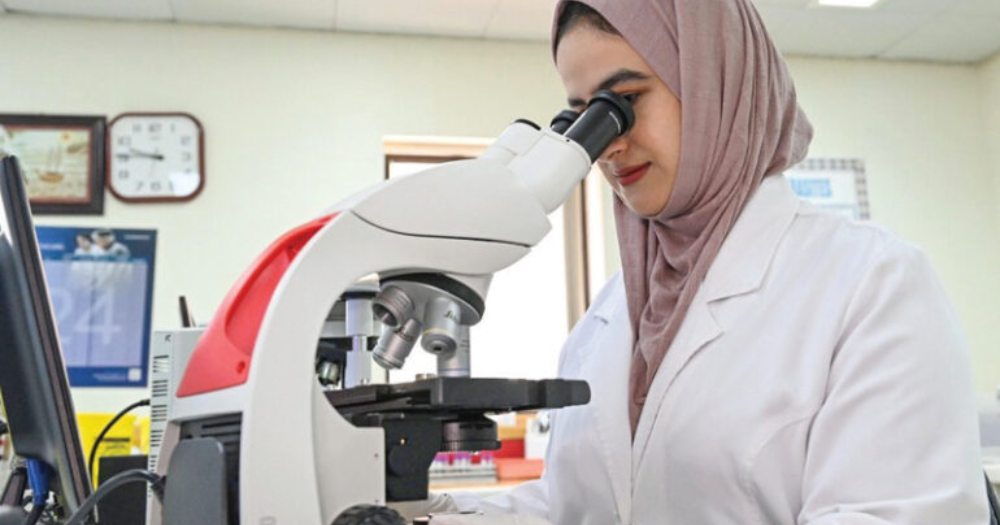Oman improving its transplant, genetic screening programmes

Oman is quietly stepping into a new era of medical science. With its latest push in organ transplant support and genetic screening, the Sultanate is moving beyond patchwork solutions and building long-term systems that could redefine public health. The National Centre for Genetic Health, the country's leading hub for such work, has just unveiled a state-of-the-art laboratory and expanded its newborn screening programme — two moves that experts say will save lives today and shape healthier generations tomorrow.
How does it work?
The new laboratory isn't just a shiny facility — it's the beating heart of Oman's organ transplant programme, covering kidney, heart, and liver. Its mission is deceptively simple: ensure that the donor and recipient are a good match and lower the odds of rejection. To get there, it relies on three crucial tools:
- HLA typing to match donors with recipients.
- HLA antibody testing to monitor transplant patients and track immune responses.
- Compatibility testing using flow cytometry, slated for launch in October 2025.
Since February 2025, routine HLA and antibody testing has been underway, with more than 200 support tests already completed by June. The centre isn't cutting corners either. It follows international standards set by the American Society for Histocompatibility and Immunogenetics and participates in global quality programmes led by the College of American Pathologists. As one official explained, these measures are designed "to reduce the risk of rejection and improve outcomes."
On the genetic side, the National Newborn Screening Programme is also ramping up. Using tandem mass spectrometry, doctors can now test for 62 conditions with a single blood sample taken just a few days after birth. Disorders like phenylketonuria, congenital hypothyroidism, and fatty acid oxidation defects — once hidden until too late — can now be caught early, opening doors to treatment before they cause irreversible harm.
Why does it matter?
For families, these aren't abstract medical advances — they're the difference between hope and heartbreak. Early screening has already had a profound impact on lives: since February, more than 6,000 newborns in Muscat alone have been tested, with 180 referred for further evaluation. Every one of those referrals represents a potential crisis averted.
For transplant patients, the lab is a safety net. Matching donors with recipients isn't guesswork anymore; it's science honed with precision tools. That means fewer failed transplants, fewer complications, and more people getting a second chance at life. In a region where organ shortages are a reality, improving success rates is nothing short of vital.
The context
None of this stands in isolation. Oman's genetic health strategy is broad and future-minded:
- Whole Exome Sequencing is in the pipeline, with the aim of building a national genetic database from data collected since 2014.
- A mandatory premarital screening programme, launching in January 2026, will check for genetic blood disorders like thalassemia, as well as infectious diseases including HIV, HBV, and HCV.
Training and education are woven into the mission. The centre, accredited by Sultan Qaboos University Hospital and the Oman Medical Specialty Board, trains more than 175 medical students, residents, and fellows annually. Graduates of its fellowship programme are now serving as genetic specialists across the country.
This is a country thinking not just about today's patients but about tomorrow's public health resilience. By rolling out the newborn screening in phases, Oman is pacing itself, tackling challenges first in Muscat before scaling nationwide. It's a measured approach — one that acknowledges both the ambition and the complexity of such reforms.
In a part of the world where healthcare often grapples with late diagnoses and limited transplant options, Oman's moves feel both pragmatic and bold. It's the kind of progress that doesn't grab headlines every day but quietly rewrites the script for thousands of lives.
💡Did you know?
You can take your DHArab experience to the next level with our Premium Membership.👉 Click here to learn more
🛠️Featured tool
 Easy-Peasy
Easy-Peasy
An all-in-one AI tool offering the ability to build no-code AI Bots, create articles & social media posts, convert text into natural speech in 40+ languages, create and edit images, generate videos, and more.
👉 Click here to learn more


